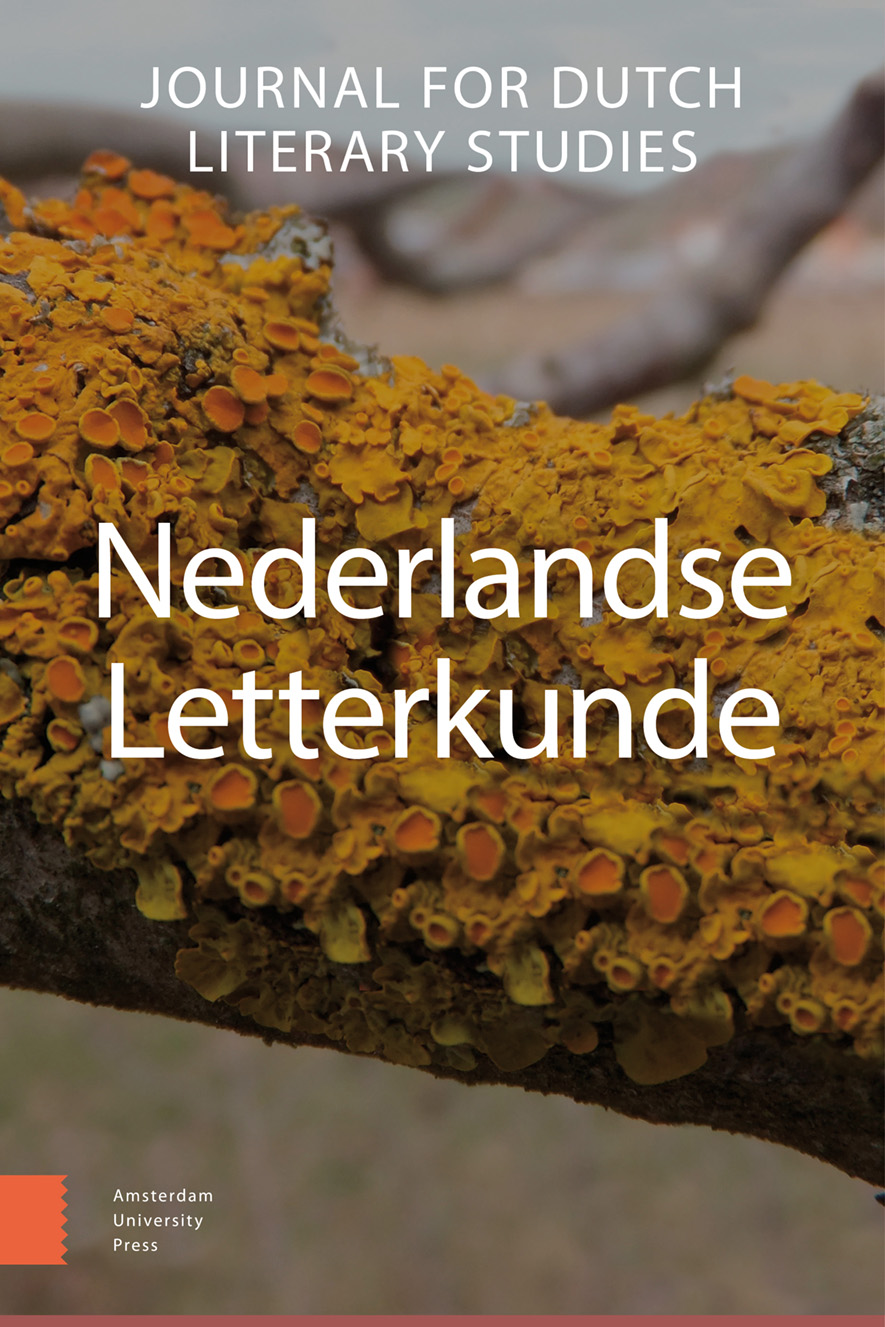- Home
- A-Z Publications
- Nederlandse Letterkunde
- Previous Issues
- Volume 15, Issue 3, 2010
Nederlandse Letterkunde - Volume 15, Issue 3, 2010
Volume 15, Issue 3, 2010
Language:
English
-
-
De macht van satire: grenzen testen, grenzen stellen
More LessAuthors: Marijke Meijer Drees & Ivo NieuwenhuisCountering the conventional view of satire as a literary mode or literary art form per se, this article discusses it as a social phenomenon, focusing more specifically on its public impact and cultural function, and on the multivarious forms in which it has manifested itself through the ages. The recently started NWO research project The p ower of satire, cultural boundaries contested is our point of departure. In the first part of t Read More
-
-
-
Avant-garde als strategie: het tijdschrift De Tafelronde - Het literaire tijdschrift als vertoog
More LessThis article argues in favour of a functionalist, discourse-oriented approach to literary periodicals. More specifically, the literary periodical is seen as a discourse which stabilizes literary and metaliterary communication, via its productive tension between on the one hand repetition and variation and on the other hand innovation and surprise. This approach is analyzed on two levels. On the one hand, its theoretical and methodolo Read More
-
-
-
Game over. Speltheorie en het ludieke experiment in Ivo Michiels’ Exit
More LessIn Exit (1971), the third book of Ivo Michiels’s Alpha Cycle, the text is moving towards a zero point in language and communication. Michiels’s literary experimentation leads to a radical gesture: the last page but one displays nothing but an ‘o’ or ‘0’. Leading up to that zero point, the text introduces several forms of ‘playing’ as metafictional performances of language, text and communication. In my essay, I will focus on th Read More
-
-
-
De crisistijd van de jaren dertig: gouden jaren voor de neerlandistiek
More LessBy Anten HansThis article gives an impression of three recently published books about literature in the thirties of the twentieth century. That period appears to be a gold mine for the study of Dutch literature. The results of the investigations give rise to the expression of new methods of research. The contributions are discussed in a way that makes clear to what extent they complement and correct Oversteegens important study Vorm Read More
-
-
-
Recensies
More LessChristophe Verbruggen, Schrijverschap in de Belgische belle époque. Een sociaalculturele geschiedenis; Liselotte Vandenbussche, Het veld der verbeelding. Vrijzinnige vrouwen in Vlaamse literaire en algemeen-culturele tijdschriften (1870-1914); Joke Corporaal, Grimmig eerlijk. Anne Wadman en het probleem van de Friese literatuur; Gera, Judit en A. Agnes Sneller, Inleiding literatuurgeschiedenis voor de international Read More
-
Volumes & issues
Most Read This Month
Article
content/journals/13845829
Journal
10
5
false
en


